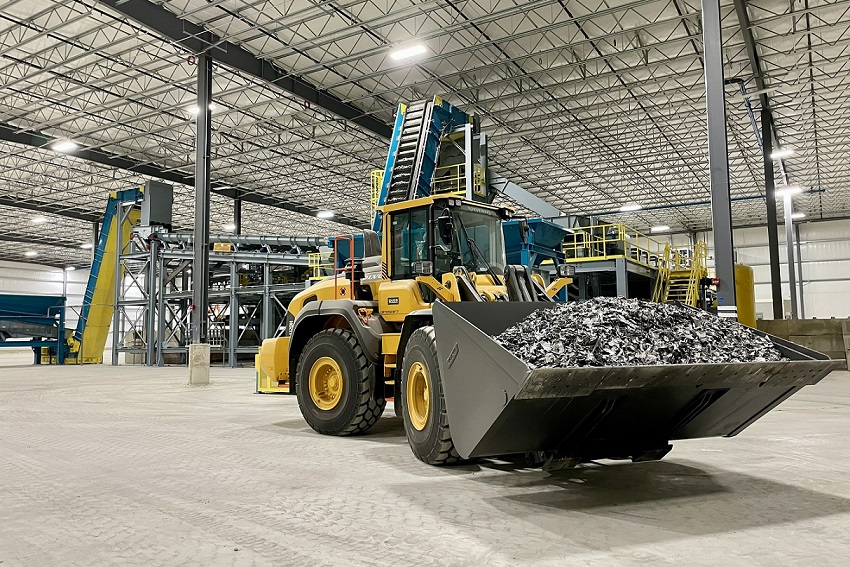AI-Based Metals Recycling Startup Sortera Raises $30 Million

Material sorting startup Sortera Technologies announced that it has raised $30.5 million in a Series C funding round, with proceeds aimed at supporting the company’s growth and fully commercializing its first full-scale upcycling facility.
Founded in 2020, Indiana-based Sortera enables the reuse of metals recovered from end-of-life products. The company’s solutions utilize artificial intelligence, image/data analytics, and advanced sensors in industrial scrap metal recycling, providing advanced industrial scale sortation methods to generate high-purity recycled and upcycled metal feedstocks from existing scrap streams.
Sortera’s first full-scale facility in Markle, Indiana, expected to be fully operational this year, will sort 220 million pounds of mixed metals per year. According to the company, segregating mixed metals into distinct alloy streams boosts recycled material use in manufacturing, cuts metals production costs, enhances metals supply for local manufacturers, and curbs pollution and greenhouse gas emissions from virgin metals.
Michael Siemer, CEO, Sortera Technologies, said:
“This funding round affirms our contributions towards global sustainable efforts and will be used to scale our operations to commercialization, grow our team, and, most importantly, continue to provide high-quality upcycled metal materials to our customer base.”
The funding round was led by RA Capital Management-Planetary Health, and included participation by T. Rowe Price, Mitsubishi Corporation’s Mineral Resources Group, and Macquarie GIG Energy Transition Solutions.
Kyle Teamey, Managing Partner, Planetary Health at RA Capital Management, said:
“Sortera’s technology advances the goals of a healthy environment and a healthy economy, and does so in a critically important sector. Non-ferrous metals, such as aluminum and copper, are essential to the ongoing massive growth in renewable energy and electric vehicles that are at the core of the energy transition. Sortera enables the transition to a cleaner, more productive economy while also providing an economic boon to metal producers.”